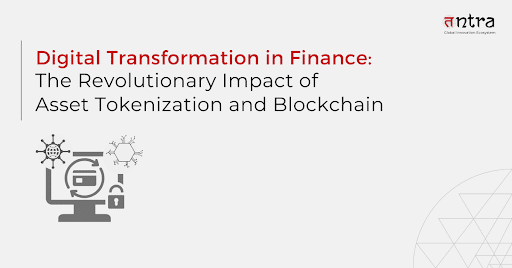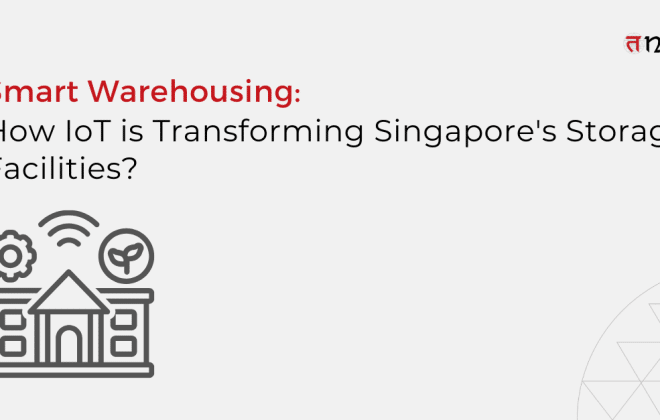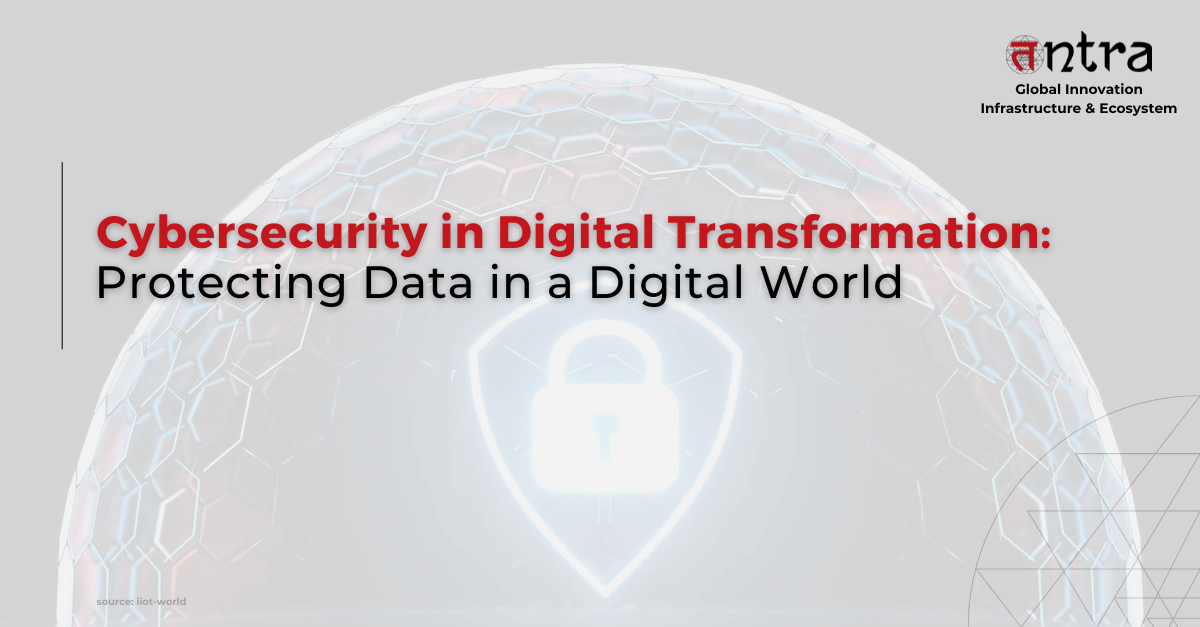
Digital Transformation in Finance: Asset Tokenization & Blockchain
Table of Contents
ToggleThe blog explores the revolutionary impact of asset tokenization and Blockchain on the financial industry. It discusses the widespread adoption of tokenization, its transformative effects on asset ownership, enhanced market liquidity, and democratization of investment opportunities. It also covers Blockchain’s role in ensuring trust, transparency, and economic advancements. The digital transformation in finance is illustrated through real-world applications. It emphasizes the ongoing evolution of these technologies, developing a more inclusive and efficient financial ecosystem, and how software product engineering solutions experts can provide innovative solutions.
Ripple Labs has recently unveiled its cutting-edge payment platform dedicated to a Central Bank Digital Currency (CBDC) within the dynamic financial landscape of Hong Kong. Collaborating with Fubon Bank, the Hong Kong subsidiary of Taiwan’s Fubon Financial Holding Co., Ripple joins the city’s innovative e-HKD (electric Hong Kong dollar) pilot program. This initiative, orchestrated by the Hong Kong Monetary Authority (HKMA), brings together key industry players to explore diverse e-HKD use cases and address implementation challenges.
Ripple announced the capabilities of its CBDC platform, enabling central banks, governments, and financial institutions to issue and manage their CBDCs throughout the entire digital currency lifecycle, encompassing transactions and distribution. Within the HKMA’s CBDC pilot program, Ripple and Fubon Bank will collaborate to test real estate asset tokenization as a potential use case for the e-HKD.
James Wallis, Ripple’s Vice President of Central Bank Engagements and CBDCs, expressed the company’s pride in being selected for the HKMA’s e-HKD Pilot Programme, highlighting the opportunity to showcase real estate asset tokenization for Hong Kong citizens. This collaboration aims to deliver an industry-first use case, demonstrating the transformative potential of leveraging CBDCs for real estate equity asset release. The integrated solution is poised to streamline loan services and enhance payment flexibility for commercial banks in Hong Kong, showcasing Ripple’s commitment to advancing financial innovation on a global scale.
Source: Forkast
Expansion of Tokenization: Transforming Financial Ecosystems
The impact of asset tokenization is broad-reaching, with potential implications spanning financial market practices, the involvement of market participants, the evolution of market infrastructure, and the regulatory landscape. This transformative approach has the capacity to influence a range of asset classes and financial instruments, signifying a significant shift in the traditional dynamics of the financial sector.
In 2021, the global market for asset tokenization exceeded 2.3 billion USD, and projections indicate it will attain a valuation of 5.6 billion USD by 2026. This increase is characterized by a robust compound annual growth rate of 19.0% throughout the forecast period.
Blockchain technology is also increasingly attracting attention within the financial sector. According to a report by PwC, 45% of financial intermediaries, including entities such as stock exchanges, money transfer services, and payment networks, encounter economic crimes annually. Blockchain technology emerges as a potential solution to address these challenges.
It can also enable financial institutions to save on international transactions. Blockchain utilizations are projected to save banks $27 billion on cross-border transactions by the end of 2030.
The Impact of Asset Tokenization and Blockchain over Digital Transformation in the Finance Industry
As per findings from the OECD Blockchain Policy Centre, utilizing distributed ledger technologies (DLTs) for asset tokenization has emerged as a leading application in financial markets. This practice extends to various assets, such as securities, commodities, and non-financial assets.
In addition, implementing Blockchain technology in the financial services industry has led to the creation of decentralized finance, or DeFi. DeFi is a financial concept that is facilitated by blockchain technology. Its main goal is to use smart contracts to eliminate middlemen in the financial services industry.
Let us see how revolutionary technology is leading to digital transformation in finance –
1. Transformation of Asset Ownership
Blockchain-driven asset tokenization is changing the way people think about ownership. The fractionalization of high-value assets, such as real estate, art, or private equity, is made possible by portraying real-world assets as digital tokens on a Blockchain. The tokenization revolution has the potential to create a more accessible and inclusive financial environment by allowing individuals to own and trade portions of these assets.
The ability to tokenize and exchange fractions of assets reduces entry barriers, making investments that were previously only available to a small group of people more accessible to a wider audience.
2. Enhanced Liquidity and Market Efficiency
The adoption of tokenization can have an effect on efficiency and liquidity in the market. Previously difficult-to-trade illiquid assets can now be tokenized and exchanged more easily. Institutions and investors both profit from this increased liquidity since it facilitates more effective price discovery and lower transaction costs. Tokenized assets can be bought and sold in smaller quantities, which improves market accessibility and draws a wider variety of players.
3. Democratization of Investment Opportunities
Tokenizing assets makes investing opportunities more accessible to anyone. Because of their high entry barriers, traditional financial instruments frequently keep individual investors out of particular markets. On the other hand, tokenizing assets allows people to use smaller sums of capital to invest in various asset types. This democratization of investment options encourages financial inclusion by enabling a wider range of investors to join in traditionally closed markets.
4. Trust and Transparency through Blockchain
The foundation of asset tokenization is Blockchain technology. All transaction data is securely stored and verified thanks to Blockchain’s decentralized and unchangeable nature. By being transparent, market players feel more confident, and the possibility of fraud is decreased. Smart contracts, automated self-executing contracts with terms directly written into code, further streamline and automate processes, minimizing the need for intermediaries and reducing the potential for errors or disputes.
5. Economic Advancements and Job Creation
Blockchain technology and asset tokenization have revolutionary implications that go beyond individual transactions. It might promote employment growth and economic improvements. The need for qualified workers in the technology, finance, legal, and regulatory areas is rising as more companies and financial institutions use these technologies. Moreover, asset tokenization promotes entrepreneurship, innovation, and economic growth by making it simpler for startups and small enterprises to obtain finance.
Tntra’s Digital Transformation Services help businesses succeed in 2025. This guide covers key strategies like modernizing systems, using AI, cloud, and analytics to boost efficiency, innovation, and growth. Learn best practices for a smooth digital transformation with Tntra. Checkout our Complete Digital Transformation Guide
Conclusion
The revolutionary impact of asset tokenization and Blockchain is contributing to the ongoing digitalization in finance. Its impact on financial services is multifaceted, encompassing changes in ownership structures, improved market dynamics, democratization of investments, enhanced trust through transparency, and broader economic implications. As these technologies continue to evolve, they reshape the financial landscape, creating a more inclusive and efficient ecosystem for participants across various sectors.
As we move towards a cashless society, secure digital-based ecosystems are becoming necessary to enhance economic growth. Therefore, traditional financial institutions are joining forces with innovative FinTech companies like Tntra to introduce new-age financial products and services.
Tntra is a software product engineering company that leverages the unique Design for Cashless (or DFC) methodology to help its customers define and build products and services for cashless transaction environments, whether these are related to transforming legacy financial services or delivering new IP-led solutions for emerging Fintech and DeFi ecosystems.
Contact Tntra FinTech experts today!





